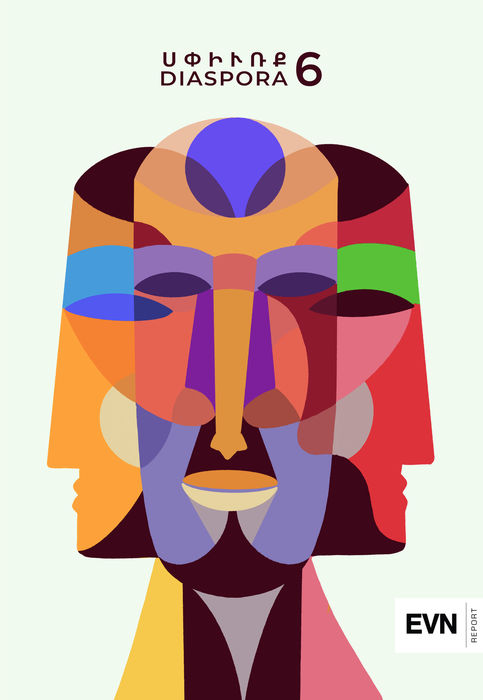While, for the past three decades, Armenia-Diaspora connections had taken on a character of mutual respect and cooperation, the 2020 Artsakh War struck a significant blow to this already-fragile relationship. Now, feelings of disappointment, betrayal, mutual distrust and deep suspicions have become widespread, as reflected throughout a wide spectrum of public outlets, ranging from social media platforms and casual group talks to political rallies and party declarations.
All this hints at the absence of a common political language—a primary condition for an intellectual crisis—that is able to accommodate the scale of the tragedy and provide us with the necessary terminology to articulate our political frustrations and otherwise. With regard to Armenia-Diaspora relations, the Armenian reality has too long been grappling with the wrong questions, often reducing the terms of the discussion to simplistic and misleading binaries or paradigms such as “assimilation/loss vs return/salvation,” “transient vs. permanent,” etc. In turn, such misshaped formulations have limited the scope through which answers to already misplaced problems or queries were sought from both sides.
Since Armenia’s independence in 1991, its relationship with the diaspora has revolved around normative understandings or assumptions of what each side should do (i.e. for the benefit or welfare of the other), whether that pertained to economic, cultural or broadly-speaking political matters, without ever questioning how such assumptions came to be in the first place. Understandably, the bulk of the considerations related to pragmatic and more mundane affairs such as cultural tourism, fundraising campaigns, construction projects and investment initiatives. Armenia’s difficult exit from the Soviet Union and precarious entrance into the 21st century left little room for discussions that went beyond the materiality of Armenia-Diaspora connections. At best, the potential return of diasporan Armenians became a topic that attracted scant public attention from time to time, yet operated within the paradigms mentioned above. Can we speak of a moral relationship between Armenia and the diaspora? If so, is it possible to articulate it through a formula? These are questions that still linger in the minds of many.
This tacit normativity has in turn hampered both sides, but particularly the diasporan communities, to cast an internal yet critical gaze at their domestic shortcomings and problems. This is not surprising since the collective identity of the diasporan Armenians has been shaped around a “psychology of dependence” from Armenia, the motherland, as Khachig Der Ghougassian aptly explains in this special issue. Therefore, the time is ripe to shift the discussion terms from a normative understanding of what Armenia or the diasporan communities ought to do to what they can actually do. The 2020 Artsakh War has so potently showed how such misplaced expectations—from both sides—paved the way for the mutual distrust that came quickly in the aftermath of the defeat and would probably remain in the foreseeable future as the political deadlock continues in Armenia while diasporan communities are re-adjusting to their normal domestic concerns.
As many of us are “rationalizing” what went wrong, trying to explain the unexplainable, we are suffering from a deficit of concepts, notions and paradigms that could guide us out of the abyss of the intellectual crisis in which we have all deeply fallen. While Armenia had always served as the spiritual, emotional and even the political lighthouse that has steered many diasporan communities through the second half of the 20th century, its military defeat left many without a guiding energy, as each one of us is coping with feelings of disillusionment.
Thus, before delivering paternalistic judgments on what went wrong, would it not be more helpful to first ask what went on? With arrogance and cynicism surging after the war and the sensibilities of responsibility dissipating, individuals ready to deliver “final'' answers to these issues have become ubiquitous in the diaspora, as well as in Armenia. Alas, they are adding more “noise” and “fog” to an already blurry picture, rather than clarifying the steps we need to navigate through these difficult times. Amidst the intellectual cacophony and dangerous war- and fear-mongering that we are witnessing, it is imperative to take a step back and deconstruct the pedestal on which we have built our mutual and national expectations. The articles of this special issue are humble efforts in this regard.




